Hello there! We're excited to share some important information regarding the recent changes in regulations that may impact your operations. Understanding these compliance requirements is crucial, as they help ensure not only your organization's success but also the safety and well-being of the community. In this article, we'll break down the key elements of the new regulations and provide practical tips for adapting to these changes. So, let's dive in and explore how you can navigate this new landscape!
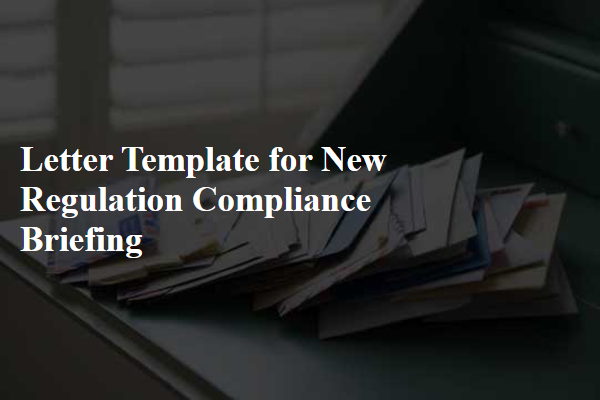
Subject Line Optimization
Subject line optimization is crucial for effective communication regarding new regulation compliance. Clear, concise messaging enhances engagement rates, ensuring recipients understand the urgency and importance of the briefing. Essential elements include specific regulation references, such as the "2023 Data Privacy Regulation" or the "OSHA Safety Standards Update." Incorporating action-oriented phrases like "Action Required," "Mandatory Briefing," or "Compliance Training Scheduled" signals urgency. Personalization, addressing specific departments or roles, increases relevance, like "Compliance Update for Marketing Teams." Formatting choices, such as capitalizing key terms or including deadlines, also help prioritize messages effectively in busy inboxes.
Clear and Concise Language
Regulatory compliance briefings require clear and concise language to ensure understanding among stakeholders. Effective communication involves direct statements regarding specific regulations mandated by bodies such as the Environmental Protection Agency (EPA) or Occupational Safety and Health Administration (OSHA). Key elements include summarizing compliance deadlines, outlining necessary documentation, and detailing implementation procedures. Utilize bullet points for clarity, emphasizing significant requirements like employee training deadlines (often requiring completion by a certain date) and safety protocols to mitigate workplace hazards. Providing a streamlined summary report can enhance comprehension, aiding organizations in adhering to regulations effectively while minimizing legal risks.
Key Regulation Highlights
The recent compliance regulations implemented by the European Union emphasize data protection standards under the General Data Protection Regulation (GDPR). This landmark legislation, enacted in May 2018, mandates organizations to enhance their data handling practices for personal information, impacting any entity operating within member countries, including Germany and France. Key highlights include the requirement for explicit consent from individuals before processing their data, as well as the obligation to notify users within 72 hours of a data breach. Non-compliance can result in substantial fines, potentially reaching up to EUR20 million or 4% of global annual turnover, showcasing the significance of adhering to these directives. Additionally, organizations are required to appoint Data Protection Officers (DPO) if they engage in large-scale processing of sensitive data, such as health records or financial information.
Actionable Compliance Steps
New regulations often require organizations to implement Actionable Compliance Steps to ensure adherence and avoid penalties. Regulatory bodies, such as the Environmental Protection Agency in the United States, can levy fines reaching thousands of dollars for non-compliance. Key steps include conducting a thorough compliance audit to assess current practices against the new standards, which may involve deadlines for implementation by specific dates, often within six months of the regulation's announcement. Training sessions, scheduled for departments such as human resources and finance, ensure that all employees understand their responsibilities under the new rules. Documentation must be meticulously recorded, as keeping detailed records can serve as evidence of compliance during potential inspections. Regular follow-up assessments are crucial to gauge progress and make necessary adjustments to maintain compliance over time.
Contact Information for Queries
New regulation compliance briefings require clear communication channels for any inquiries. Primary contact information should include the compliance officer's name, a direct phone line, and an email address dedicated to regulation-related questions. This ensures that stakeholders can efficiently seek clarification on the newly implemented regulations. Organizations may also benefit from providing a dedicated web portal with FAQs and resource documents, enhancing the overall understanding of compliance requirements. Including a physical address for mailing inquiries is crucial for more formal communications or documentation submissions.
Letter Template For New Regulation Compliance Briefing Samples
Letter template of informational session for new compliance requirements
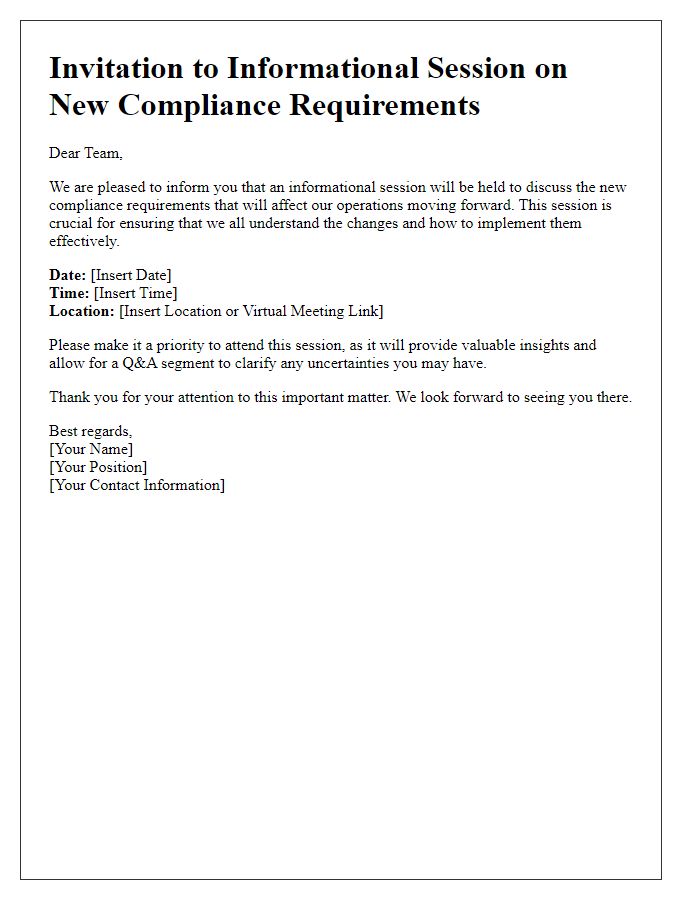
Letter template of update communication regarding compliance adjustments
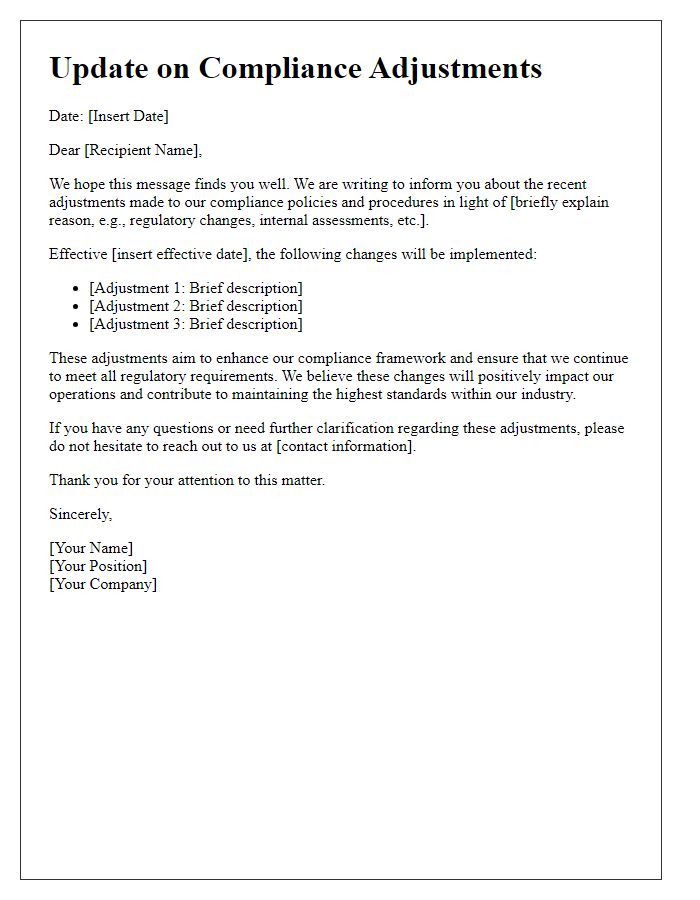

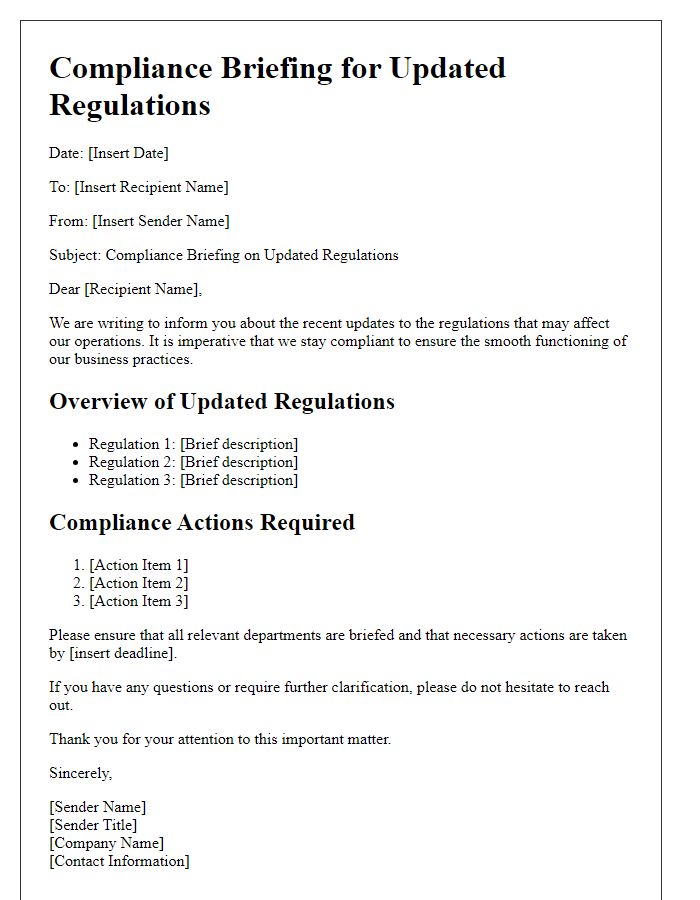
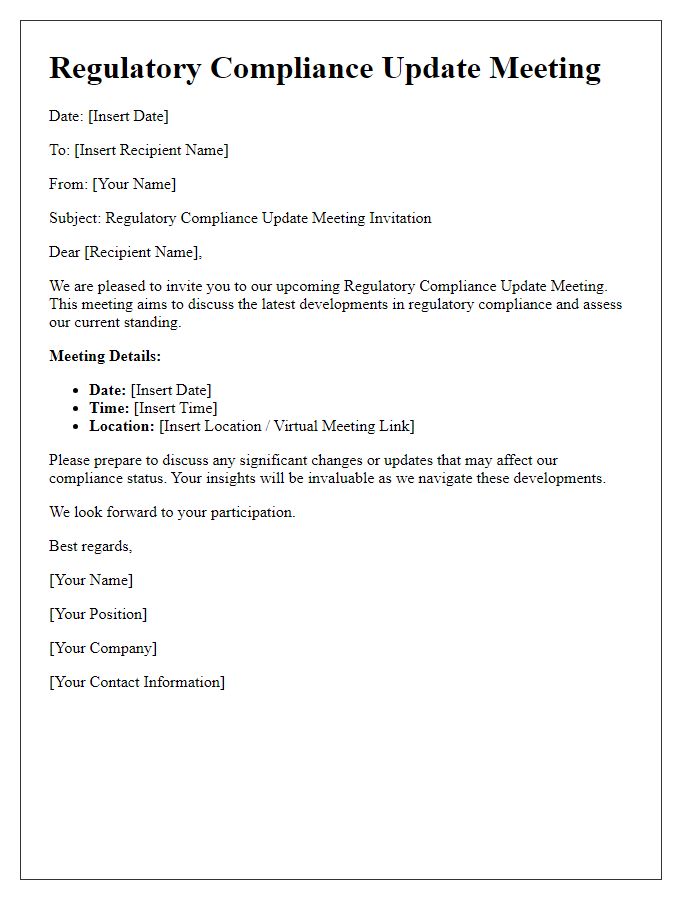
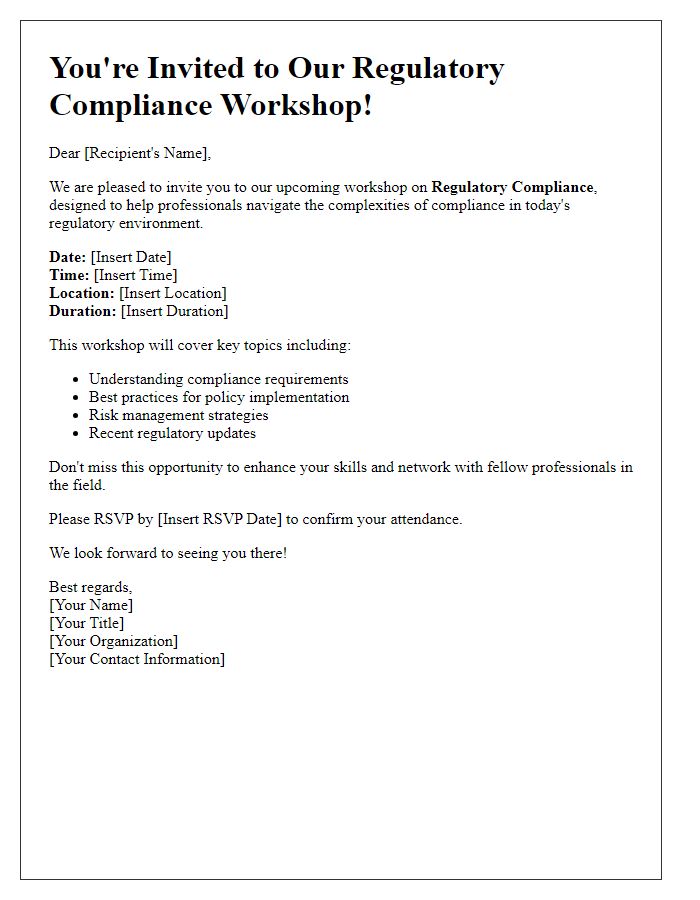
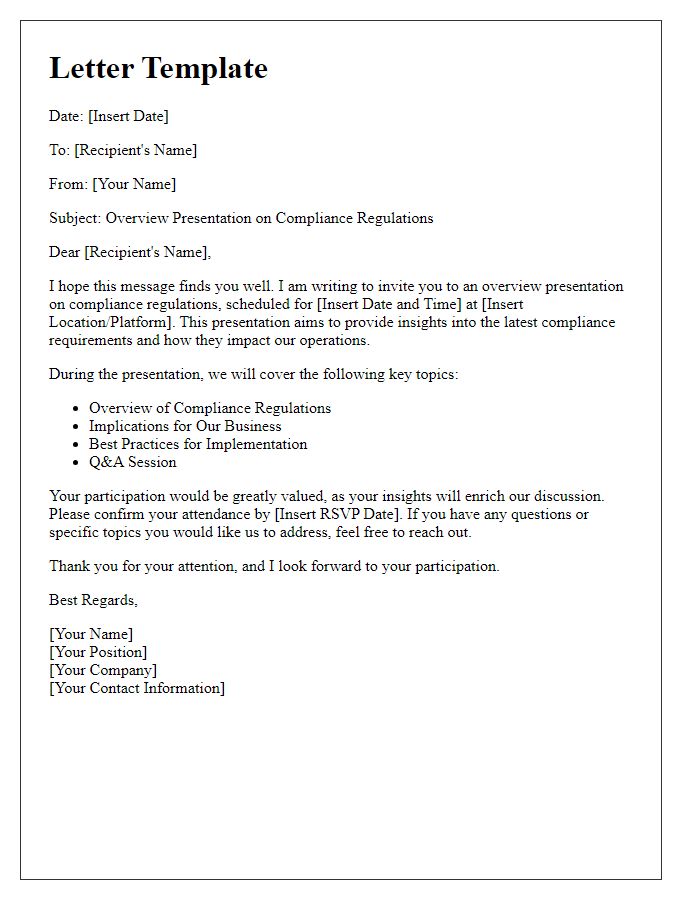
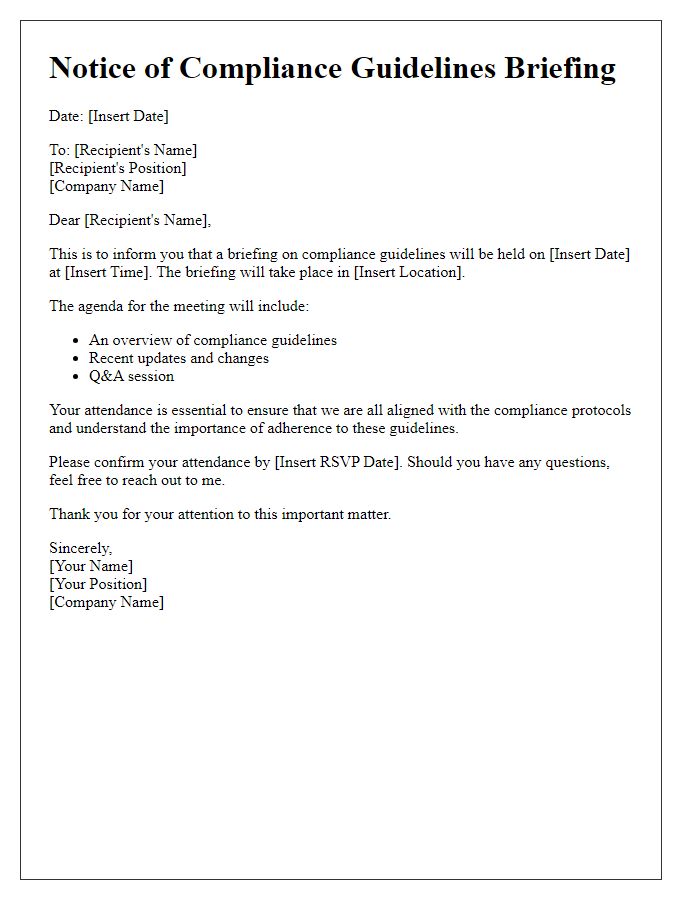
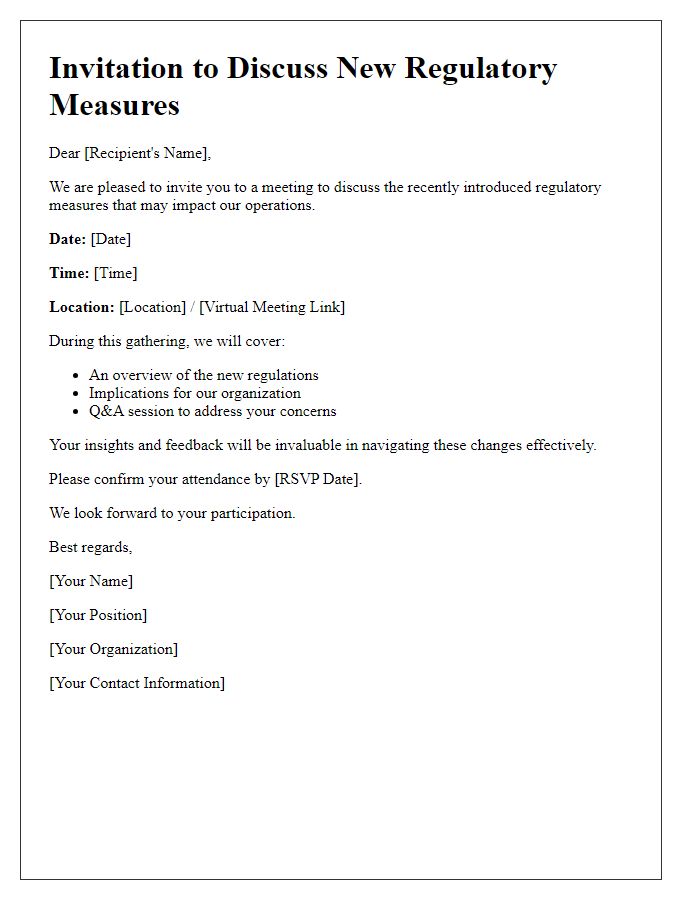
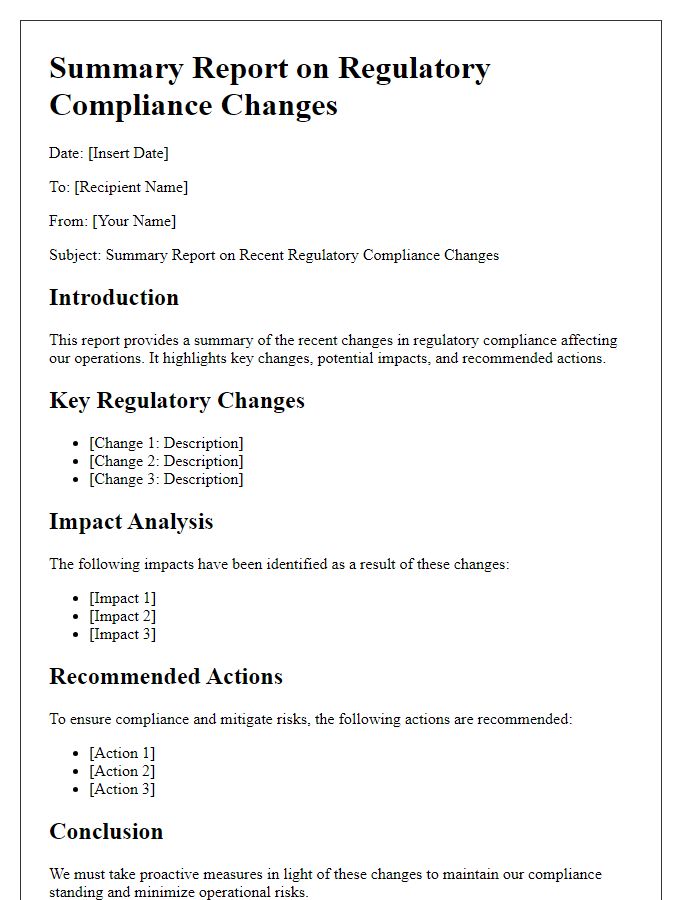
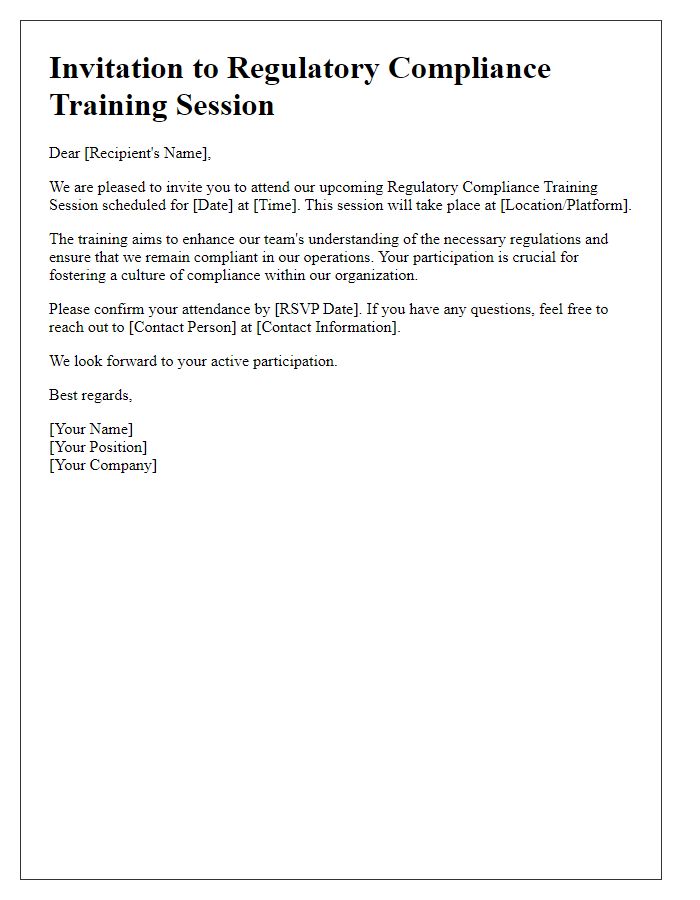

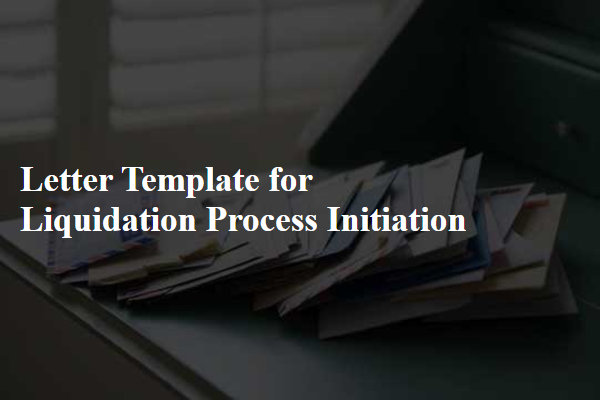
Comments